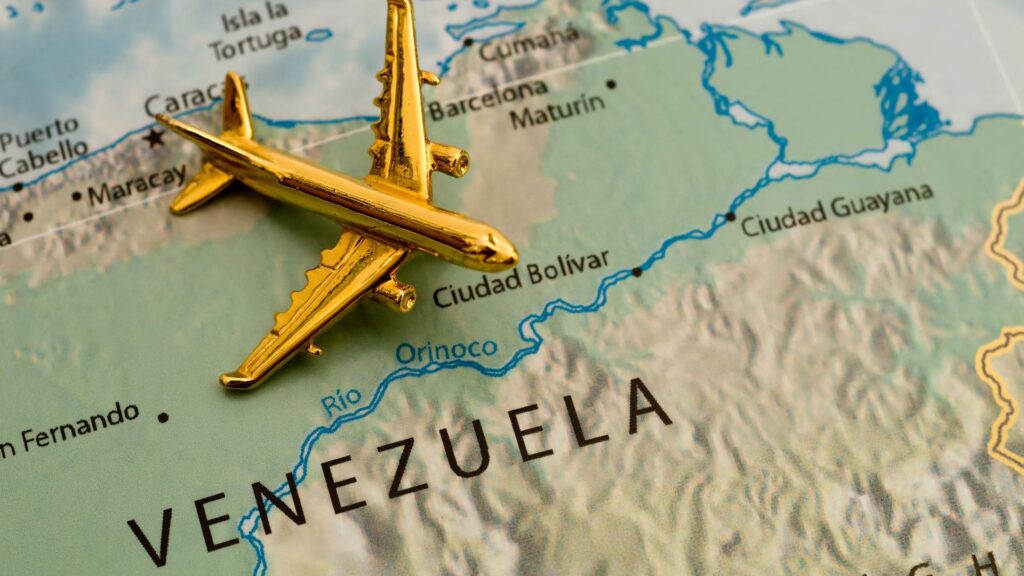Venezuela, a South American country known for its stunning landscapes and rich cultural heritage, has unfortunately gained a reputation as one of the most dangerous nations on Earth. Behind the headlines and sensational media coverage lies a complex reality that cannot be ignored. In this article, we will delve deeper into the factors that have contributed to Venezuela’s dangerous reputation, exploring its political instability, economic crisis, high crime rates, human rights issues, and the impact on healthcare and education. By understanding these factors, we can gain a more comprehensive understanding of the challenges that Venezuela faces and the hope for a better future.
Political instability in Venezuela

One of the key factors contributing to Venezuela’s dangerous reputation is its long-standing political instability. The country has experienced a series of political crises, marked by power struggles, corruption, and authoritarian governance. This instability has led to a lack of trust in government institutions, eroded democratic processes, and fueled social unrest. Political polarization and the suppression of dissenting voices have further deepened the divide within Venezuelan society, exacerbating the challenges faced by its citizens.
Economic crisis and hyperinflation
Venezuela’s economic crisis has had a devastating impact on its population, contributing to its dangerous reputation. The country has experienced hyperinflation, with prices skyrocketing at an alarming rate. This has resulted in a severe shortage of basic goods, including food, medicine, and essential supplies. The economic collapse has caused widespread poverty, leaving many Venezuelans struggling to meet their basic needs. Desperation and scarcity have fueled an increase in crime rates, as people resort to illegal activities to survive. The economic crisis has also led to a mass exodus of Venezuelans, seeking a better life in neighboring countries.
Crime rates and violence in Venezuela
Venezuela has one of the highest crime rates in the world, with widespread violence plaguing its cities. Robberies, kidnappings, and homicides have become alarmingly common, creating an environment of fear and insecurity. Gangs and organized crime syndicates thrive in this atmosphere, further contributing to the country’s dangerous reputation. The lack of effective law enforcement and a weak judicial system have allowed criminals to operate with impunity, perpetuating a cycle of violence that is difficult to break. The high crime rates not only affect the safety of Venezuelan citizens but also deter foreign investment and tourism, exacerbating the country’s economic woes.
Human rights issues in Venezuela
Human rights violations have been a major concern in Venezuela, adding to its dangerous reputation. Reports of political persecution, arbitrary detentions, and torture have raised alarm bells within the international community. Freedom of expression and the right to peaceful assembly have been curtailed, stifling dissent and limiting the ability of Venezuelans to voice their concerns. Humanitarian organizations have documented cases of extrajudicial killings and the use of excessive force by security forces. The erosion of human rights not only undermines the well-being of the Venezuelan people but also tarnishes the country’s global standing.
Next Article: Discovering the Thrilling Sahara Railway in Mauritania
Impact on healthcare and education
The dire situation in Venezuela has had a profound impact on its healthcare and education systems, further exacerbating the challenges faced by its citizens. Hospitals and medical facilities suffer from a lack of resources, including essential medicines and equipment, resulting in inadequate healthcare services. The education system has also been severely affected, with a shortage of teachers, outdated infrastructure, and limited access to quality education. The combination of a crumbling healthcare system and an underfunded education system has had a detrimental effect on the well-being and future prospects of the Venezuelan population.
International response and aid efforts
The international community has not turned a blind eye to Venezuela’s challenges, with various countries and organizations offering aid and support. Humanitarian organizations are working tirelessly to provide assistance to vulnerable populations, addressing issues such as food insecurity, healthcare, and education. International pressure has also been exerted on the Venezuelan government to address human rights concerns and restore democratic processes. However, the complex political situation and economic crisis present significant obstacles to effective aid efforts, requiring sustained collaboration and innovative approaches.
Tourism and travel advisories
Venezuela’s dangerous reputation has had a significant impact on its tourism industry. Many countries have issued travel advisories, warning their citizens about the risks associated with visiting the country. The high crime rates, political instability, and economic challenges have deterred tourists from exploring the country’s natural beauty and cultural treasures. However, it is important to note that Venezuela still has much to offer in terms of its natural wonders, including Angel Falls, the world’s highest waterfall, and the stunning Caribbean coastline. As the situation improves, tourism has the potential to play a crucial role in Venezuela’s recovery and revitalization.
Hope for the future: Initiatives and reforms
Despite the daunting challenges, there is hope for a better future for Venezuela. Initiatives and reforms aimed at addressing the root causes of the country’s problems are being pursued by both domestic and international actors. Efforts to promote dialogue, rebuild democratic institutions, and tackle corruption are crucial steps towards stability and progress. Economic reforms and investment in key sectors such as healthcare and education are also essential to alleviate the suffering of the Venezuelan population. By supporting these initiatives and remaining engaged with the situation, we can contribute to the hope for a brighter future for Venezuela and its people.
Conclusion: The complex reality of Venezuela’s dangerous reputation
Venezuela’s dangerous reputation is not simply a result of media hype or sensationalism. It is a complex issue rooted in political instability, economic crisis, high crime rates, and human rights concerns. The impact on healthcare and education, as well as the international response and travel advisories, further contribute to the challenges faced by the country. However, amidst the darkness, there is hope. Initiatives and reforms, along with international support, offer a glimmer of light for a better future. Understanding the factors that have led to Venezuela’s dangerous reputation is essential in order to address the root causes and work towards a more stable, prosperous, and safe Venezuela.




